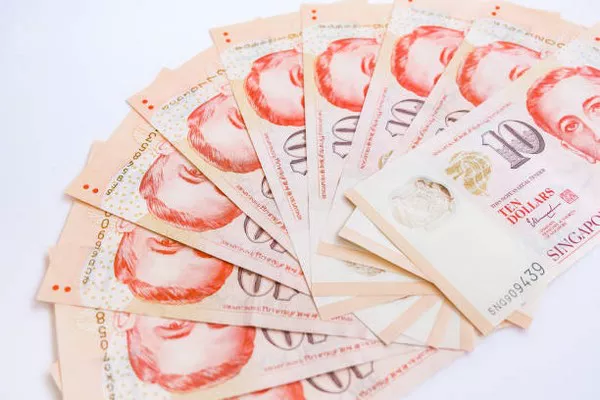Choosing the most suitable currency to carry or use in Singapore is a critical consideration for travelers and individuals engaging in financial transactions in the country. With Singapore being a major global financial hub and a popular tourist destination, understanding the currency options available and their implications is essential for optimizing convenience, cost-effectiveness, and overall financial planning. This article aims to provide a comprehensive analysis of the best currency to take to Singapore, considering various factors such as exchange rates, acceptance, and transaction costs.
Factors Influencing Currency Selection
Exchange Rate Dynamics
Understanding Exchange Rates: Exchange rates determine the value of one currency relative to another. Factors such as economic indicators, market sentiment, and geopolitical events influence exchange rate movements.
Comparing Exchange Rates: Assess the exchange rates of different currencies against the Singapore Dollar (SGD) to identify the most favorable option. Real-time exchange rate information can be obtained from financial websites, currency exchange platforms, or banks.
Acceptance and Accessibility
Widespread Acceptance: Consider the extent to which a currency is accepted in Singapore for various transactions, including retail purchases, dining, accommodation, and transportation.
Accessibility: Evaluate the availability of currency exchange services and ATMs dispensing the desired currency in Singapore. Opt for currencies that are readily accessible to avoid inconvenience and additional costs associated with currency conversion.
3 Popular Currency Options for Singapore
United States Dollar (USD)
Global Reserve Currency: The US Dollar is widely regarded as the world’s primary reserve currency, making it readily accepted in Singapore and other international destinations.
Exchange Rate Stability: The USD maintains relatively stable exchange rates against the SGD, offering consistency and predictability for currency exchange transactions.
Accessibility: US Dollars are readily accessible through currency exchange services, banks, and ATMs in Singapore, enhancing convenience for travelers and businesses.
Euro (EUR)
Eurozone Influence: The Euro is the official currency of several countries within the Eurozone, contributing to its acceptance and accessibility in international markets, including Singapore.
Exchange Rate Considerations: While the Euro may offer competitive exchange rates against the SGD, fluctuations in exchange rates relative to the USD should be considered for indirect conversions.
Availability: Euro currency exchange services and ATMs are available in Singapore, particularly in major commercial areas and tourist hubs.
British Pound Sterling (GBP)
Historical Influence: The British Pound Sterling, historically significant in global trade and finance, remains a viable currency option for transactions in Singapore.
Exchange Rate Dynamics: Exchange rates between the GBP and SGD may exhibit volatility, influenced by economic factors and geopolitical developments.
Accessibility: Currency exchange services offering GBP and ATMs dispensing Pound Sterling are available in Singapore, catering to the needs of British travelers and businesses.
Considerations for Currency Exchange
Transaction Costs and Fees
Exchange Rate Margins: Currency exchange providers often apply a margin or markup to exchange rates, affecting the overall cost of currency conversion. Compare exchange rates and margins across different providers to minimize transaction costs.
Additional Fees: Consider any additional fees or charges associated with currency exchange, such as service fees, commissions, and ATM withdrawal fees. Opt for providers offering transparent fee structures and competitive rates.
Mitigating Currency Risks
Hedging Strategies: Explore hedging instruments such as forward contracts or options to mitigate the risk of adverse exchange rate movements. Locking in exchange rates in advance can provide certainty for future transactions involving the selected currency.
Conclusion
Selecting the best currency to take to Singapore involves a comprehensive assessment of exchange rates, acceptance, accessibility, transaction costs, and currency exchange dynamics. While currencies such as the US Dollar, Euro, and British Pound Sterling are popular options due to their global significance and widespread acceptance, travelers and businesses should evaluate individual preferences and financial objectives when making currency decisions. By considering the factors outlined in this article and conducting thorough research, individuals can optimize their currency choices for a seamless and cost-effective experience in Singapore.
FAQs:
Is it better to exchange currency in Singapore or in my home country?
The optimal location for currency exchange depends on factors such as exchange rates, transaction costs, and convenience. While exchanging currency in Singapore may offer competitive rates, it is advisable to compare rates and fees with those in your home country to make an informed decision.
Are there any restrictions on bringing foreign currency into Singapore?
Singapore imposes regulations on the amount of foreign currency that can be brought into the country without declaration. Travelers should familiarize themselves with relevant customs and immigration guidelines to comply with currency importation requirements.
Can I use multiple currencies for transactions in Singapore?
While the Singapore Dollar (SGD) is the official currency, some establishments may accept major foreign currencies, particularly in tourist areas and international business districts. However, exchange rates and acceptance may vary, so it is advisable to carry SGD for local transactions.
Should I exchange currency at the airport in Singapore?
Currency exchange services at airports may offer convenience but often come with higher exchange rates and fees compared to other locations. Consider exchanging a small amount for immediate expenses and utilizing alternative exchange options for larger transactions.
What should I do with leftover foreign currency when leaving Singapore?
Options for dealing with leftover foreign currency include exchanging it back to your home currency, keeping it for future travel, or donating it to charity. Evaluate exchange rates and fees to determine the most cost-effective approach based on the amount and currency involved.


